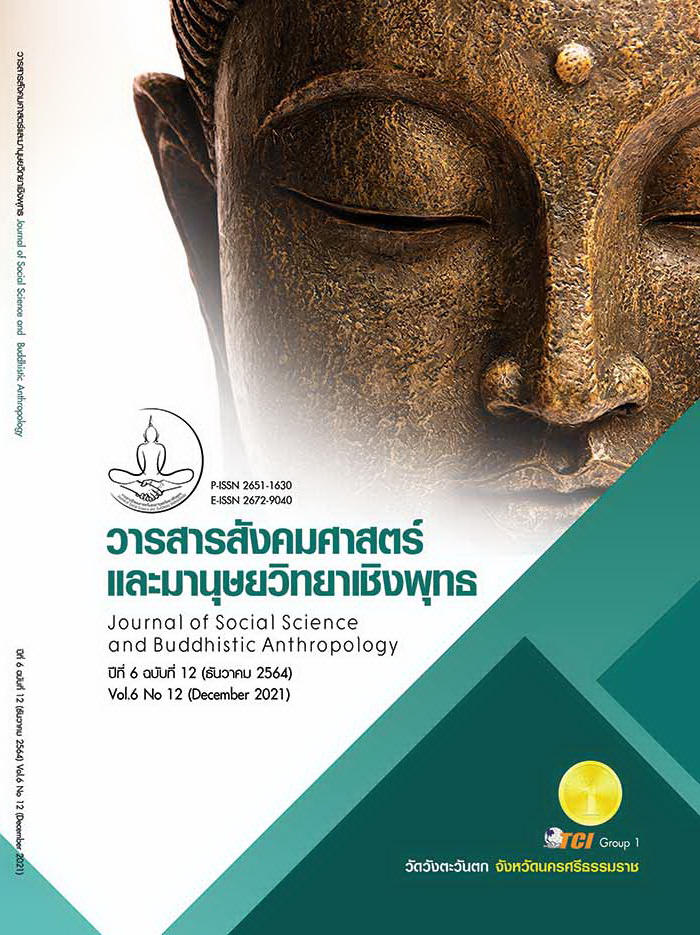DEVELOPMENT COACHING TO EMPOWER TEACHERS PROVIDING EXPERIENTIAL LEANING TO ENHANCE CRITICAL THINKING FOR STUDENTS
Keywords:
Coaching, Critical Thinking, Experiential Learning, Teacher Competency, StudentAbstract
The objectives of this research article were to 1) develop coaching to enhance school-teacher’s competency for providing experiential learning process to promote critical thinking for school students, 2) evaluate the effectiveness of coaching to enhance school-teacher’s competency for providing experiential learning process to promote critical thinking for school students. Action research was used as the research methodology. Purposive sampling was used to select the participants from Bantungkroa school, an extended opportunity school that needs to develop learning management through a coaching strategy. The target groups consisted of 1) internal coaching teams were three school administrators, five volunteer school teachers acting as coaches, 2) external coaching teams were three supervisors, one primary health care staff, two teachers from Walailak University, 3) fifteen school teachers responsible for learning management in the experiential learning process, and 4) forty-five school-students representatives, a total of seventy-four people. Action research divided into three phases with four steps of activities was used: 1) Initial phase: planning stage, 2) Working phase: action stage, and 3) Terminate phase: observation stage and reflection stage. The data were collected by using focus-group discussion, interviews, and observation. Content analysis was used in data analysis. The results revealed that effective coaching consists of four steps: 1) understanding, planning, and defining roles and duties in the coaching process between the coaches and the coaches of administrators, teachers, and related parties; 2) developing the competency of the coaches, implementation of coaching operations in positive ways, continuous monitoring of coaches from both internal and external coaches; 3) observation of the coaching process; and 4) reflections during and after the end of the operation. The results revealed that school teachers developed learning management competencies in the experiential learning process and also were able to see the positive changes in the analytical thinking competencies that occur with school students effectively.
References
กรมสุขภาพจิต กระทรวงสาธารณสุข. (2559). องค์ความรู้การดำเนินงานดูแลสุขภาพวัยรุ่นแบบบูรณาการสำหรับทีมนักจัดการสุขภาพวัยรุ่น (พิมพ์ครั้งที่ 1). กรุงเทพมหานคร: บียอนพับลิสซิ่งจำกัด.
ประภัสสร จันดี. (2563). ปัจจัยที่มีอิทธิพลต่อภาวะซึมเศร้าของนักเรียนมัธยมศึกษาตอนต้นในโรงเรียนขยายโอกาสทางการศึกษา. ใน วิทยานิพนธ์พยาบาลศาสตรมหาบัณฑิต สาขาวิชาการพยาบาลสุขภาพจิตและจิตเวช . มหาวิทยาลัยบูรพา.
วินัย รอบคอบ และคณะ. (2561). ภาวะซึมเศร้า พฤติกรรมการดื่มสุรา และความเสี่ยงต่อการฆ่าตัวตายของวัยรุ่น. พยาบาลสาร, 45(4), 144-158.
สถาบันราชานุกูล กระทรวงสาธารณสุข. (2559). คู่มือการดูแลเด็กวัยเรียนที่มีปัญหาพฤติกรรม-อารมณ์สำหรับบุคลากรสาธารณสุข (ฉบับทดลองใช้). (พิมพ์ครั้งที่ 2). กรุงเทพมหานคร: ชุมนุมสหกรณ์การเกษตรแห่งประเทศไทย.
สมพร ชูทอง และคณะ. (2559). การพัฒนากลยุทธ์การจัดการศึกษาเพื่อป้องกันปัญหาทะเลาะวิวาทของนักเรียนอาชีวศึกษาจังหวัดสมุทรปราการ. วารสารวิจัยและพัฒนา วไลยอลงกรณ์ ในพระบรมราชูปถัมภ์, 11(3), 267-280.
Acharya, D. et al. (2017). Evaluating school-based sexual health education programme in Nepal: An outcome from a randomized controlled trial. International. Journal of Educational Research, 82(2017), 147-158.
Jowett, S. (2017). Coaching effectiveness: the coach–athlete relationship at its heart. Current Opinion in Psychology, 16(2017), 154-158.
Kemmis, S. & McTaggart, R. (1988). The Action Research Planner (3 rd ed.). Victoria: Deakin University.
Kennedy, M. D. (2009). Gangs and public policy: Constructing and deconstructing gang databases. Criminology & Public Policy, 8(2009), 711-716.
Kohler, P. et al. (2008). Abstinence-Only and Comprehensive Sex Education and the Initiation of Sexual Activity and Teen Pregnancy. Journal of Adolescent Health, 42(4), 344-351.
Kolb, Y. A. & Kolb, A. D. (2005). Learning Styles and Learning Spaces: Enhancing Experiential Learning in Higher Education. Academy of Management Learning & Education, 4(2),193-212.
Kunlasomboon, N. et al. (2015). Research and development of classroom action research process to enhance school learning. Procedia-Social and Behavioral Sciences, 171(2015), 1315-1324.
Kyriakides, L. et al. (2015). The impact of school policy and stakeholders’ action on student learning: A longitudinal study. Learning and Instruction, 36(2015), 113-124.
Lerner, R. M. (2005). Promoting positive youth development: Theoretical and empirical bases. Washington, D.C: National Academy of Sciences.
Lindberg, L. D. et al. (2016). Changes in adolescents’ receipt of sex education, 2006-2013. Journal of Adolescent Health, 58(6), 1-7.
Mathew, A. et al. (2020). Genetics of adolescent suicide: A literature review. Journal of Indian Association of Child and Adolescent Mental Health, 17(2), 135-161.
Sales, A. et al. (2011). Action research as a school-based strategy in intercultural professional development for teachers. Teaching and Teacher Education, 27(5), 911-919.
Stalker, K. C. et al. (2018). The impact of the positive action program on substance use, aggression, and psychological functioning: Is school climate a mechanism of change?. Children and Youth Services Review, 84(2018), 143-151.
Downloads
Published
How to Cite
Issue
Section
License
Copyright (c) 2021 Journal of Social Science and Buddhistic Anthropology

This work is licensed under a Creative Commons Attribution-NonCommercial-NoDerivatives 4.0 International License.









